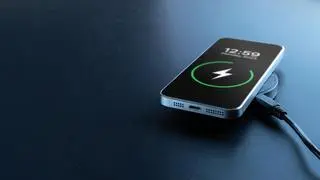A study by researchers from IIT-Mandi, IIT-Roorkee, Yale University (USA), University of Tubingen (Germany), and Brain Wave Science, Inc (USA), suggests that chanting the Hare Krishna mantra along with cognitive behavioural therapy (CBT) may be a cost-effective alternative to insomnia treatment. The ‘Hare Krishna mantra-based cognitive therapy (HMBCT)’ includes sleep restriction therapy, stimulus control therapy, and sleep hygiene, along with an audible mantra chanting-based training.
The results of the study were published in the Journal of Sleep Research and Therapy. The paper has been co-authored by Prof Laxmidhar Behera, Director, IIT-Mandi; Dr Tharun Kumar Reddy, Assistant Professor, Department of Electronics and Communication Engineering, IIT-Roorkee; and Dr Chandan Kumar Behera, Postdoctoral Associate, Yale University School of Medicine; Prof Niels Birbaumer, Director, Institute of Medical Psychology and Behavioural Neurobiology, University of Tubingen; and Dr Krishna Ika, President and CEO, Brain Wave Science, Inc, Southborough, USA.
Insomnia is a sleep disorder that affects millions of people worldwide and is characterised by difficulty falling asleep, or staying asleep, or both. Traditional CBT is a common treatment for insomnia, but it can be expensive and time-consuming. The researchers aimed to evaluate a novel, cost-effective alternative therapy that includes mantra chanting.
Explaining the rationale behind the research, Dr Laxmidhar Behera said, “Different spiritual traditions promote the use of chanting for spiritual awareness. Islam has prescribed prayers called Salah, while Christianity has the Gregorian chant. The Vedas, a large body of ancient Indian literature, describe the Hare Krishna mantra as a tool to purify the mind. Anecdotal reports have suggested that mantra meditation could improve sleep quality in primary insomnia subjects.”
The researchers conducted a pilot study to establish the groundwork for a larger study. They administered HMBCT therapy to one group of participants while another group listened to soothing music.
The six-week pilot study involved 48 male participants from varied faiths. Each week, the participants in the therapy group received six 45-minute sessions of HMBCT in the evening and were asked to practise the therapy on the evenings of sleep recording.
Sleep quality was assessed using behavioural measures, sleep logs, and sleep recordings before and after the treatment period. The results showed that HMBCT significantly improved sleep quality measures, including a 61 per cent reduction in Epworth Sleepiness Scale (ESS) scores and an 80 per cent reduction in Insomnia Severity Index (ISI) scores.
Participants did not take any sleep-inducing medication during the study.
The findings suggest that adding mantra chanting to traditional CBT may improve sleep quality.
Dr Reddy cautions that more research is needed to confirm the efficacy of HMBCT in treating insomnia.











Comments
Comments have to be in English, and in full sentences. They cannot be abusive or personal. Please abide by our community guidelines for posting your comments.
We have migrated to a new commenting platform. If you are already a registered user of TheHindu Businessline and logged in, you may continue to engage with our articles. If you do not have an account please register and login to post comments. Users can access their older comments by logging into their accounts on Vuukle.